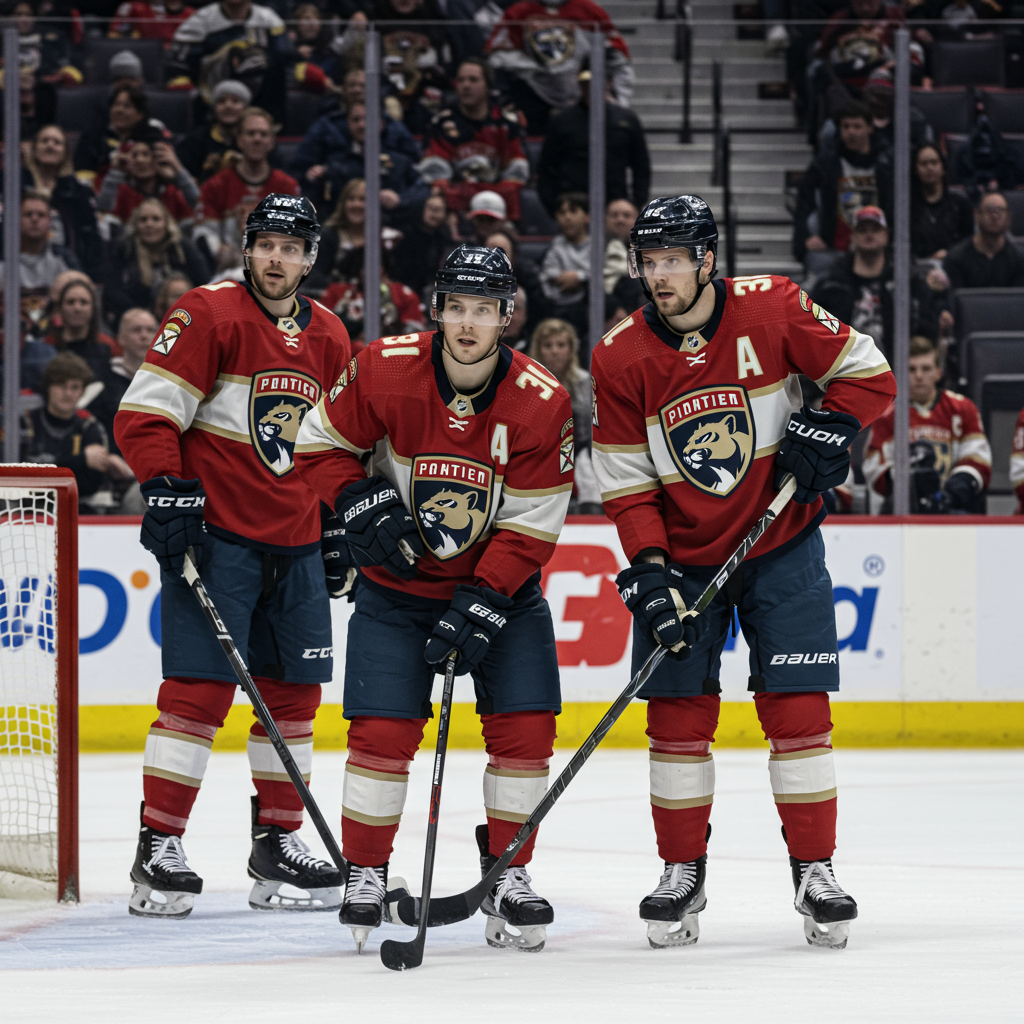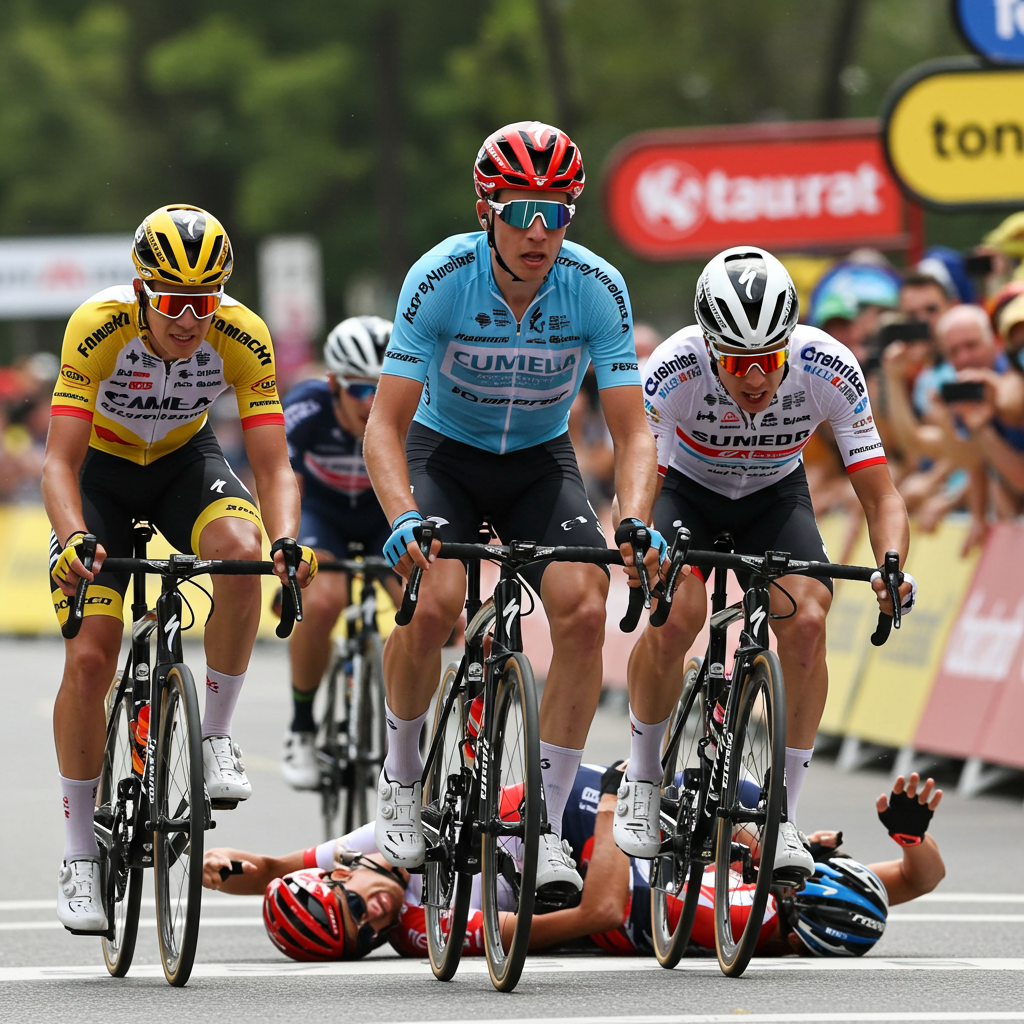The San Francisco 49ers, fresh off a dominant 3-0 start to their 2025 NFL season, have been dealt a devastating blow: star defensive end Nick Bosa is believed to have suffered a season-ending torn ACL. This crushing news, emerging just hours after the team’s hard-fought victory over the Arizona Cardinals, immediately shifts the narrative for a franchise with Super Bowl aspirations. The absence of one of the league’s most disruptive defensive players creates an immense void that the 49ers will struggle to fill.
NFL Network Insider Ian Rapoport initially reported the belief of an ACL tear, a sentiment echoed and confirmed by sources including ESPN’s Adam Schefter. This significant injury marks a brutal turning point for a San Francisco team already battling a growing list of key players on the sidelines. The road ahead for the 49ers just got significantly tougher without their cornerstone pass rusher.
The Fateful Play and Initial Reactions
The injury occurred late in the first quarter of Sunday’s game against the Arizona Cardinals at Levi’s Stadium. Nick Bosa, known for his relentless pass rush, fell awkwardly to the turf during a play where he was reportedly double-teamed by Cardinals offensive linemen Kelvin Beachum and Evan Brown. As Bosa clutched his knee, the immediate concern among players and fans was palpable. He was seen signaling a “thumbs down” gesture as he made his way to the locker room, a grim premonition of the severity that was soon to be confirmed.
Despite the visible distress, 49ers Head Coach Kyle Shanahan initially expressed cautious optimism post-game, suggesting that preliminary testing had not indicated a torn ACL. However, as further imaging and evaluations were conducted on Monday, that hope quickly dissipated. Reports from NFL.com and other outlets swiftly confirmed the worst: Bosa had indeed suffered a torn anterior cruciate ligament. The Athletic’s Dianna Russini further specified it was a “clean tear” of the right ACL, suggesting that while surgery is necessary, the recovery might be more straightforward without additional ligament damage. This distinction offers a small silver lining in an otherwise dark cloud for Bosa and the 49ers faithful.
A History of Resilience: Bosa’s Previous ACL Battles
For Nick Bosa, this is unfortunately not his first encounter with such a severe injury. The former Defensive Player of the Year previously tore his left ACL in Week 2 of the 2020 NFL season, cutting short what was expected to be a dominant year. Even earlier in his career, as a high school senior in 2015, he sustained a partially torn ACL. These past experiences, while undoubtedly painful, also highlight Bosa’s incredible resilience and capacity for a successful return.
Following his 2020 ACL tear, Bosa made a remarkable comeback, demonstrating his elite talent. He went on to earn his second of five career Pro Bowl selections and was named the NFL’s Defensive Player of the Year in 2022. That season, he led the league with an astounding 18.5 sacks, solidifying his reputation as one of the most dominant edge rushers in professional football. His ability to not only return but excel at an even higher level after his previous ACL injury offers a glimmer of hope for his long-term future, even as this immediate setback sidelines him for the entire 2025 season. This proven track record of recovery will undoubtedly be a mental boost for Bosa as he embarks on another arduous rehabilitation journey.
The Immense Void: Impact on the 49ers Defense
Losing a player of Nick Bosa’s caliber is nothing short of a seismic event for any NFL team. As a consistently disruptive force, Bosa’s absence creates an almost irreplaceable void in the San Francisco 49ers’ defense. Through three games of the 2025 season, Bosa had already begun to make his mark, accumulating 17 total tackles, three quarterback hits, two sacks, two forced fumbles, and one fumble recovery. These early statistics underscore the significant impact he had on every snap, often drawing double teams and altering offensive game plans.
Historically, the 49ers’ success has been inextricably linked to Bosa’s presence. In the 2020 season, when Bosa was sidelined with his previous ACL injury, San Francisco finished with a disappointing 6-10 record and missed the playoffs entirely. Conversely, in the four seasons where Bosa played at least 16 games, the 49ers consistently reached at least the NFC Championship Game, highlighting his critical role in their deep playoff runs. Veteran left tackle Trent Williams eloquently described Bosa’s absence as a “real buzzkill,” acknowledging that while the “next-man-up” mentality is common in sports, replacing Bosa’s unique blend of skill and leadership would require “three or four guys” to collectively fill his role. This speaks volumes about the challenge ahead for Defensive Coordinator Robert Saleh and the entire coaching staff.
Who Steps Up for San Francisco?
With Nick Bosa now out for the season, the 49ers will need other players to elevate their game significantly. The pressure immediately mounts on the defensive line to maintain its elite performance. Bryce Huff, an offseason acquisition who previously played under Robert Saleh, has shown early promise, leading the 49ers with 11 quarterback pressures and tying Bosa for the team lead with two sacks through three weeks. Huff will undoubtedly see an increased workload and will need to sustain his impressive production.
Additionally, first-round rookie defensive lineman Mykel Williams is expected to play a much larger role. Williams has already generated nine quarterback pressures and one quarterback hit this season, demonstrating his potential. Other rostered pass rushers like Sam Okuayinonu and Yetur Gross-Matos will also be called upon to step up. While the team has confidence in its depth, the option of exploring the free-agent market, with a name like DeMarcus Walker potentially available, or even the trade market for the “right price,” cannot be ruled out. The collective effort required to compensate for the loss of a game-wrecker like Bosa will test the true depth and resilience of the 49ers’ roster.
Broader Injury Concerns for the 49ers
The news of Nick Bosa’s torn ACL arrives at a time when the San Francisco 49ers are already grappling with an alarming number of injuries across their roster. The team has already placed ten players on Injured Reserve, including crucial contributors like tight end George Kittle (hamstring), who was sidelined after Week 1. Other notable players currently dealing with injuries or on the Physically Unable to Perform (PUP) list include quarterback Brock Purdy (shoulder and toe injuries, missing his second consecutive start), wide receivers Jauan Jennings (shoulder and ankle) and Brandon Aiyuk (knee), and safety Malik Mustapha (knee).
This accumulation of injuries creates a challenging landscape for the 49ers, severely testing their depth and coaching strategies. The context of these broader injury issues magnifies the impact of Bosa’s loss, as the team cannot afford to lose another key player without significantly hindering their chances for a deep playoff run. Linebacker Fred Warner acknowledged that overcoming significant injuries has become an “unfortunate reality” for the 49ers, underscoring the team’s reliance on collective effort and adaptability to navigate these adversities.
What This Means for the 2025 Season
Despite starting the 2025 season with a perfect 3-0 record, Nick Bosa’s season-ending torn ACL significantly alters the San Francisco 49ers’ trajectory. His absence removes a cornerstone of their defense, a player capable of single-handedly changing the momentum of a game. While the 49ers possess a talented roster and a strategic coaching staff, replacing Bosa’s consistent pressure, sack numbers, and overall disruptive presence will be an immense challenge.
The team’s aspirations for a Super Bowl run will now depend heavily on the development of younger players, the sustained performance of others, and the creative schemes of Defensive Coordinator Robert Saleh. The phrase “impossible to replace” has been used to describe Bosa’s impact, suggesting that the team can only “try to plug the hole.” This brutal news, coming after such a strong start, forces the 49ers to confront an immediate and formidable test of their resilience and depth as they aim to keep their championship dreams alive.
Frequently Asked Questions
What exactly is an ACL tear, and what does it mean for Nick Bosa’s recovery?
An ACL (anterior cruciate ligament) tear is a common but severe knee injury, often requiring surgery and extensive rehabilitation. It typically takes 9-12 months for athletes to fully recover and return to competitive play, although individual timelines vary. For Nick Bosa, this means he will miss the entire remainder of the 2025 NFL season. Given that he previously recovered from a torn left ACL in 2020 and returned to an elite level, including winning Defensive Player of the Year, there’s optimism for a full recovery for his right ACL tear, which has been reported as a “clean tear” without other ligament damage.
Which players on the 49ers roster are expected to fill Nick Bosa’s role?
With Nick Bosa sidelined, the San Francisco 49ers will look for a collective effort to fill his shoes. Key players expected to step up include Bryce Huff, an offseason acquisition who has already shown strong pass-rushing ability and leads the team in QB pressures. Rookie first-round defensive lineman Mykel Williams will also see an increased snap count and greater responsibility. Other rostered pass rushers like Sam Okuayinonu and Yetur Gross-Matos will be crucial. The team may also explore external options through the free-agent market, with DeMarcus Walker mentioned as a potential target, or the trade market to bolster their defensive line depth.
How does Nick Bosa’s season-ending injury impact the San Francisco 49ers’ 2025 Super Bowl aspirations?
Nick Bosa’s season-ending ACL injury significantly impacts the San Francisco 49ers’ Super Bowl aspirations. As a former Defensive Player of the Year and one of the league’s most dominant edge rushers, his absence creates an irreplaceable void in the team’s defense. Historically, the 49ers’ playoff success has correlated strongly with Bosa’s healthy presence. While the team started 3-0 and has a talented roster, losing a game-changing player of Bosa’s caliber will make it significantly harder to maintain consistent pressure on opposing quarterbacks and disrupt offensive game plans, challenging their path to a deep playoff run.


